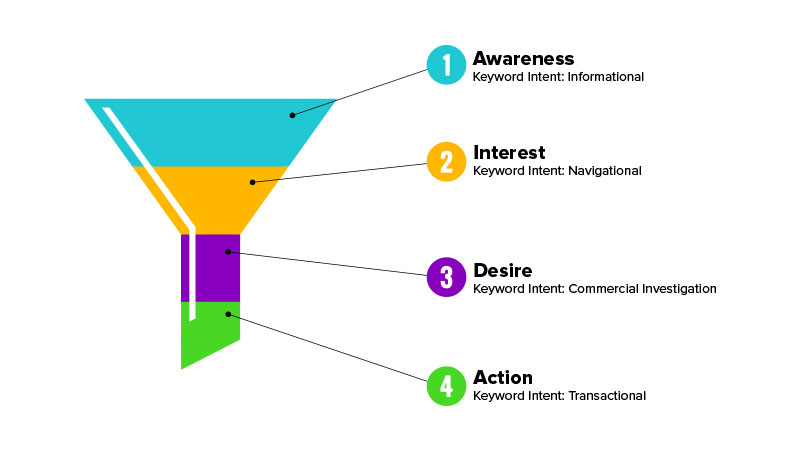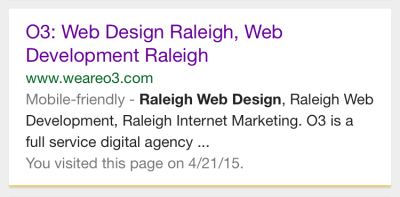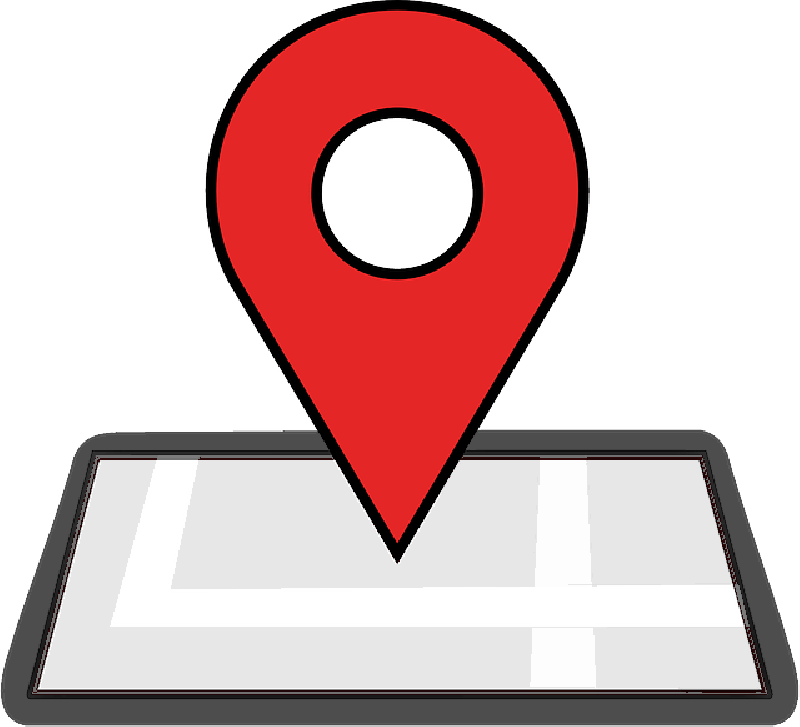By now, most everyone in business has heard the acronym for the mysterious cloud of online marketing services: SEO. Search Engine Optimization is the term coined around optimizing your website so that search engines rank you higher above your competitors. You may have entertained the call time-to-time from telemarketers looking to sell you on SEO services. You may have hung up on a few and you may have given serious thought to a few. The very real fact is that a qualified SEO partner can drastically change your business. Not all, if any, of those who are calling are qualified. It’s important that business owners understand the basics of SEO so that they may make an educated decision with whom they will be investing hard earned marketing dollars. We’re here to break it down.
All search engines have 2 primary functions:
- Deliver the most contextually relevant results to its users and
- Drive revenue through advertisements
SEO involves organic search results, or unpaid listings aimed at getting in the top ten or higher. SEM, or search engine marketing is the second function. Your goal should center on ranking as high as possible for your industry key terms in the organic listings. It’s a battle full of hurdles, but understanding the key deliverables in a well-rounded SEO campaign will help you make the best decision for your firm.
Keyword Research Mapped To User Intent
For many businesses, most users can simply search, click, and buy/convert. But in some spaces, user search patterns have grown more complex. Modern search users now look for supporting content such as reviews, related topics, competitor/model comparisons, and hacks/tricks/tips to enhance their experience or maximize potential return from your products or services. SEO is a means to harvest the demand for your products or services so the keyword research needs to be mapped to user intent. Keywords can be grouped into 4 main segments based on user intent (stage of the buyer’s journey): Awareness (Informational), Interest (Navigational), Desire (Commercial Investigation), and Action (Transactional).
Content Driven Strategy
Any SEO proposal that does not center on content probably should not be one that is considered. The content on your site is the primary driver of traffic from search engines. Going back to number 1 above, how do search engines evaluate contextual relevance? It’s pretty simple actually. The only way to do that is for the search engines to actually read and rank your website based on the content it sees.
As search engines become more sophisticated, they’re evaluating content more and can filter out peripheral, duplicate, or irrelevance from the search results. A responsible content marketing plan, the cornerstone of any SEO proposal, not only helps you become more relevant for the search engines but more importantly helps you become more relevant to the visitors that come to your website. The better the content, the higher the chance of obtaining link backs or social shares from readers. These signals can boost relevance and enhance your ability to rank higher.
Most companies use their blog as the primary outlet of content production. This is a great approach. Keep mixed multimedia in mind. While text-based content is good, infographics and video potentially bring more to the table in regards to how that content is shared and distributed.
The old methods of “keyword stuffing” simply don’t work anymore. Google’s ranking algorithm is sophisticated. It can read and comprehend like a human and can easily determine relevance. Always be sure to write naturally. If it’s readable by a human, 99 times out of 100, it’ll be read and understood by the machines as well.
Link Building
Link building has always been the lifeblood of SEO. Sustainability has replaced scalability in terms of positive result link building. The idea used to be to get as many as you can from anywhere you could. Now the focus should be centered around getting links from highly valuable and contextually sensitive sources. Becoming a regular contributor to an industry-specific publisher or publishing definitive data visualizations on your own site are more effective in today’s SEO ecosystem. Be sure the agency you hire understands relevance and intent in their link building campaigns. Be very cautious and wary of link building agencies who have monthly quotas. Agencies who continue this practice are dangerous because at some point the good link resources run out and just to meet the quota, they have to serve you low quality links. It may not matter much to you until you’re hit with a penalty and lose a major segment of your site traffic.
Be very cautious and wary of link building agencies who have monthly quotas. Agencies who continue this practice are dangerous because at some point the good link resources run out and just to meet the quota, they have to serve you low quality links. It may not matter much to you until you’re hit with a penalty and lose a major segment of your site traffic.
Cross Your Technical T’s
A huge anchor to the domination of the SERPs (search engine results pages) are the technical details – the dirty behind the scenes of how your website is built. Your website may look perfectly fine to you and your visitors. But it may be a mess for Google and others. If it’s a mess to them, you’re going to get held back. Authoring websites with search engines in mind is something we do as a standard. Unfortunately, that’s not the case across the board for agencies in the field.
The quickest and easiest way to determine if you have a problem on your hand is to get a comprehensive audit of how your website is viewed in the eyes of the search crawlers. We offer a preliminary audit absolutely free. Get in touch with us to get the report. No strings attached.
If your audit comes back clean then check it off the list. If there are issues, you should look at remediating them sooner rather than later.
Meta Descriptions and Titles
You may have heard of a meta tag. In short, it’s a code reference that is not visible to an end user that informs 3rd parties, including search engine crawlers, of additional details about a particular page on your website. If you receive a proposal that mentions keyword meta tags at all, throw it out. In the days of old, one of those pieces of information served to search engines and not the user was a set of keywords. Nothing stopped abuse of that system. Search engines quickly phased that method out since one could declare a page relevant via keywords that had nothing to do with its content without the repercussion of mixed messaging viewed by a visitor. Meta keywords are out. Don’t worry about them.
What you should worry about are the page titles and meta descriptions. Titles are still a very strong signal in the search ecosystem. They help Google understand the subject matter of your pages. Descriptions may not carry the same value they once did, but they can certainly compel users to click on your website in the search results over a competitor. As you browse Google next, the blue links are the titles and the short excerpts are the meta descriptions. It does a lot of good to optimize these accordingly. Do know that these are often suggestions to the search engines. If it finds your title or description to be irrelevant, it will serve up its own version which it deems more relevant to the user’s search intent.

The Importance of Being Mobile
Last month, Google activated it’s latest in algorithm updates aimed mostly around mobile visibility. Websites that are served in a friendly manner to mobile devices are promoted when a search originates from a mobile device. As far as we know, the mobile friendliness of any given website does not positively or negatively impact desktop search results. Google views mobile friendliness as another indicator of serving up relevance. It has therefore made responsive web design all that more important. We’ve been in the responsive web design game for years now. So we weren’t worried.

If you have a site that is not optimized for mobile users, you should consider fixing that. 1 in 3 Internet visits now originates from a phone or a tablet, up from 1 in 4 just a year ago. It’s sizable enough to take seriously and we expect that trend only to magnify over the next few years before it reaches a plateau.
Local SEO
If your customer market segment is centered in a geographic location, then optimizing for local search results should be an integral component of your strategy. You’ve probably seen the map listings before. Search for pizza and Google will automatically determine your location and give you a list of results based on proximity to you. Coming up higher in this list produces valuable click-throughs whether you’re selling a product or service. Moreover, proximity-based search results on mobile devices have already become the standard.
Citations
One of the strongest signals to Google for local SEO is consistency in citations across the web. There are quite a few local data aggregators and directories. Make sure the ones you choose are relevant in some way. Having your company listed correctly and consistently is critically important. If your address lists you as 123 Main Street on Google Plus but 123 Main St. on Yelp, you will need to look at creating a standard and sticking with it. Ultimately, you want citations from most of the online location services. It’s a time-intensive operation, but a qualified SEO agency should be able to handle this project in an efficient manner.
Summing Up
Equipping yourself to better evaluate SEO and SEO service offerings will help you avoid costly mistakes. Further, any SEO agency you’re talking with should be able to speak authoritatively and answer all of your questions and come to the table with a comprehensive approach. Hitting on all cylinders of an SEO campaign, while time intensive, produces long-term, sustainable traffic growth.
This post was co-authored by Brian Onorio and Don Rhoades.


